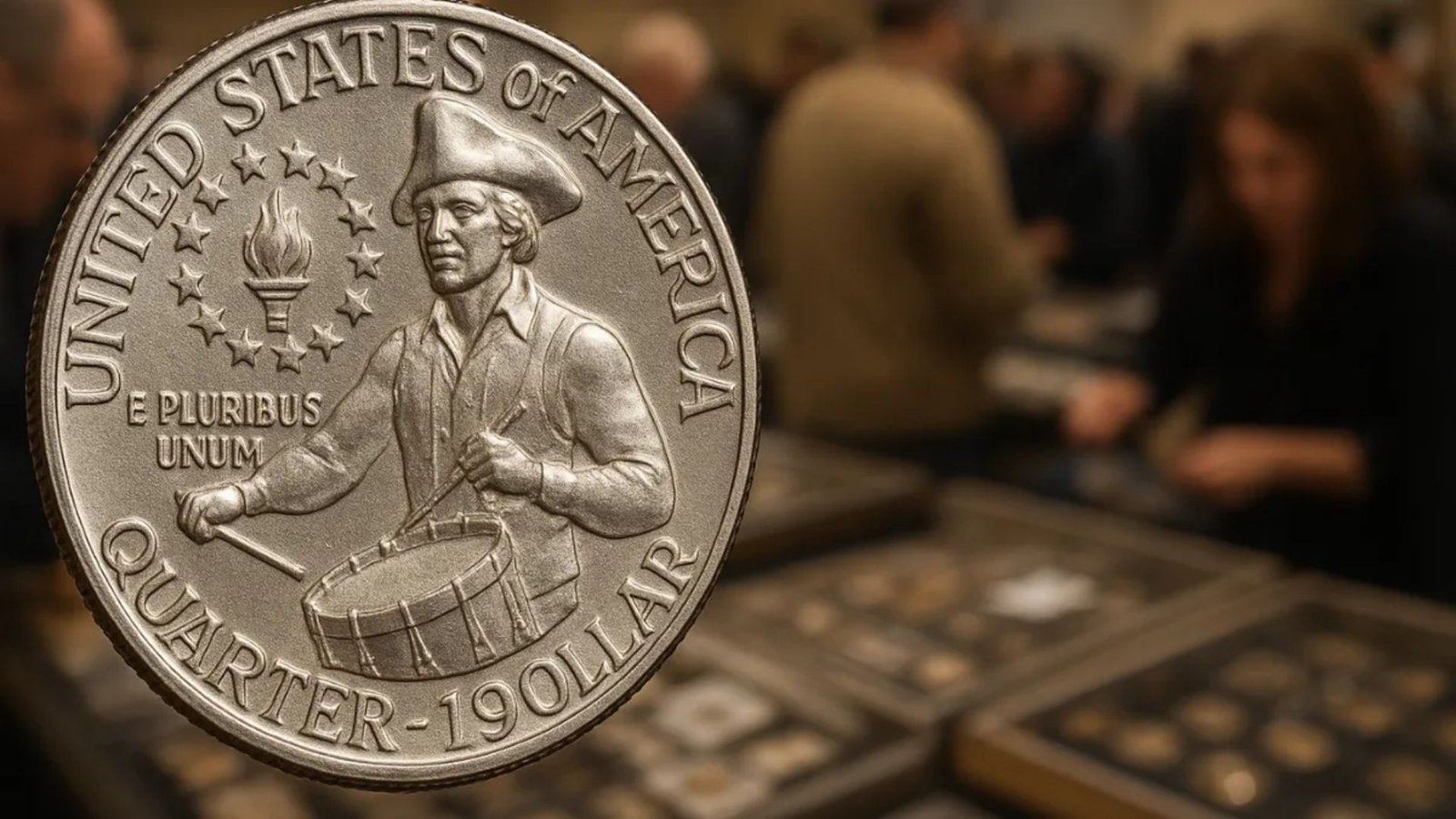Imagine finding a quarter in your pocket worth $11 million! The 1976 Bicentennial Quarter, minted to celebrate America’s 200th birthday, has sparked a coin craze. Some rare versions are insanely valuable. Read on to learn why and how to spot one!
What Is the Bicentennial Quarter?
The Bicentennial Quarter is a special coin minted in 1975 and 1976 to mark America’s 200th anniversary. It features a colonial drummer on the back and George Washington with a “1776-1976” date on the front. Over 1.6 billion were made, but a few rare ones are worth millions.
History of the Bicentennial Quarter
In 1976, the U.S. Mint launched a coin series to celebrate the nation’s bicentennial. The quarter’s reverse, designed by Jack L. Ahr, shows a drummer boy, a torch, and 13 stars for the original colonies. Most were copper-nickel, but some were struck in 40% silver for collectors. A few rare errors slipped into circulation, sparking today’s craze.
Why Is It So Valuable?
Most Bicentennial Quarters are worth 25 cents, but rare versions fetch millions due to:
- Minting Errors: Double-die errors (blurry or doubled designs) or off-center strikes.
- Silver Planchets: Some were accidentally struck on silver blanks, meant for special sets.
- Pristine Condition: Coins graded MS-70 (near-perfect) are highly prized.
- Collector Demand: Rarity and historical significance drive auction prices sky-high.
One such quarter, with a double-die error and silver composition, reportedly sold for $11 million
Common vs. Rare Bicentennial Quarter
| Feature | Common Quarter | Rare $11M Quarter |
|---|---|---|
| Material | Copper-Nickel | 40% Silver (Rare) |
| Mint Mark | D, No Mark, or S | Often S (San Francisco) |
| Errors | None | Double-Die, Off-Center |
| Value | 25 Cents | Up to $11 Million |
| Condition | Circulated | Mint State (MS-68+) |
How to Spot a Rare Bicentennial Quarter
Think you’ve got a treasure? Here’s what to look for:
- Date: Check for “1776-1976” on the front.
- Mint Mark: Look near Washington’s head for “S” (San Francisco, often silver), “D” (Denver), or no mark (Philadelphia).
- Errors: Use a magnifying glass to spot doubled letters or misaligned designs.
- Condition: Pristine coins with no wear are more valuable.
If you suspect a rare find, get it appraised by PCGS or NGC.
Notable Facts About the Coin
- Mintage: ~809M (Philadelphia), 860M (Denver), 4.9M (San Francisco, silver-clad).
- Record Sale: A silver-proof quarter with a double-die error fetched $1.8M recently.
- Still in Circulation: Experts believe some $11M quarters are in pocket change!
- Other High-Value Coins: A 1976-S silver proof (MS-69) sold for $19,200 in 2019.
Notable Bicentennial Quarter Sales
| Coin Type | Sale Price | Year Sold |
|---|---|---|
| 1976-S Silver Proof (MS-69) | $19,200 | 2019 |
| 1976-D Clad DDO | $1,821 | Recent |
| 1976-S Clad Proof | $342 | Recent |
| $11M Error Quarter | $11 Million | Unknown |
Expert Tips for Coin Hunters
- Carry a Magnifier: Small errors are hard to spot without one.
- Check Coin Rolls: Buy rolls from banks to inspect for rarities.
- Join Collector Communities: Forums like CoinTalk offer tips and insights.
- Never Clean Coins: Cleaning can ruin value. Store in protective holders.
- Get Professional Grading: NGC or PCGS can verify authenticity and value.
FAQs About the Rare Bicentennial Quarter
Q: Are all Bicentennial Quarters worth millions?
A: No, most are worth 25 cents. Only those with errors or silver content are valuable.
Q: How do I know if my quarter is silver?
A: “S” mint mark quarters are shinier and heavier. A coin dealer can confirm.
Q: Can I find one in circulation?
A: Yes, rare quarters may still be in change or old coin jars.
Q: Should I clean my quarter?
A: Never! Cleaning damages coins and lowers their value.
Conclusion
The $11 million Bicentennial Quarter is a hidden treasure that could be in your pocket! Its history, rarity, and jaw-dropping value make it a coin collector’s dream. Next time you’re sorting change, check for that drummer boy and “1776-1976” date—you might strike it rich! Share this post with fellow coin enthusiasts, and happy hunting!

